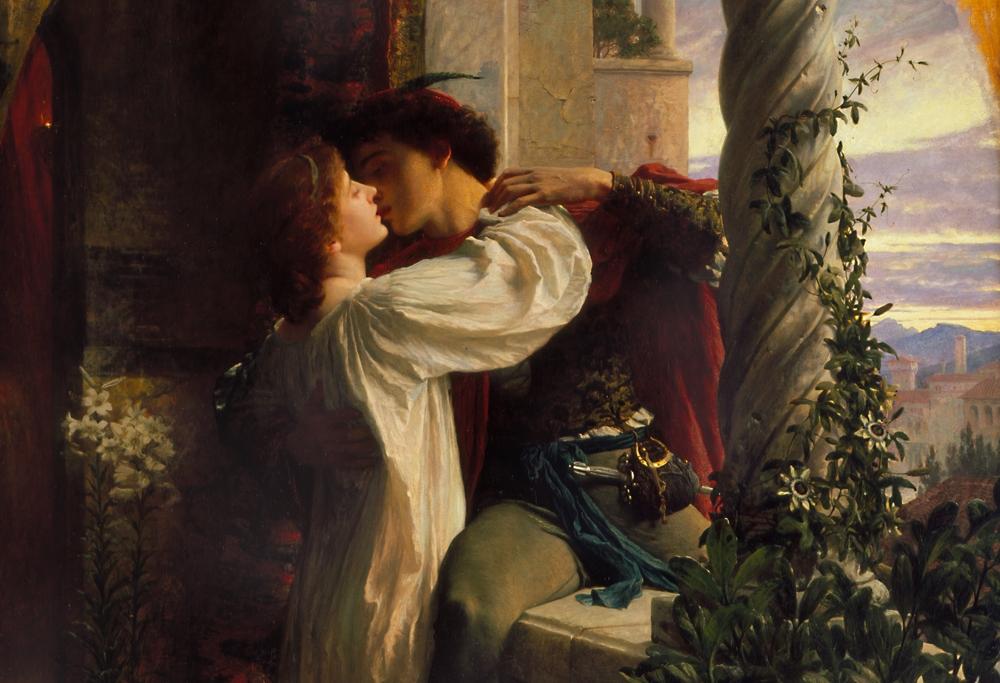
A detail of “Romeo and Juliet,” 1884, depicted in oil on canvas by Frank Bernard Dicksee. Southampton City Art Gallery. Public Domain
For a lecture course I teach at Brown University called “Love Stories,” we begin at the beginning, with love at first sight.
To its detractors, love at first sight must be an illusion—the wrong term for what is simply infatuation, or a way to sugarcoat lust.

